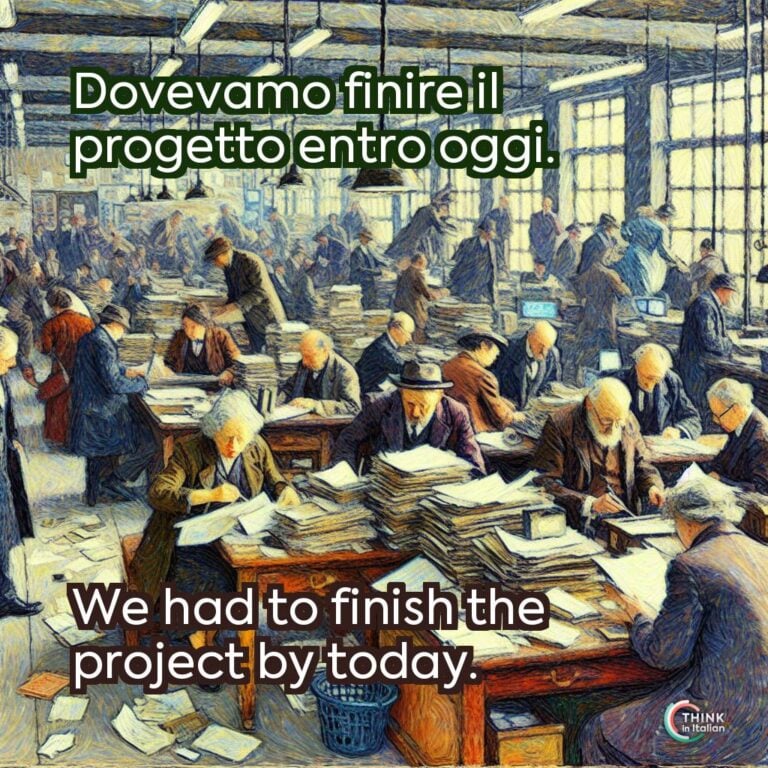How to say must in Italian: dovere
The English verbs “must” and “to have to” are often translated in Italian with dovere.
As with other frequently used verbs, dovere is an irregular verb, meaning that it does not follow the same pattern as other second conjugation verbs and presents many different forms for each tense.
Dovere is also a modal verb (or so-called helper verb) and is followed by a verb in the infinitive tense.
Modal verbs are also called helper verbs because their function is to “help” another verb by communicating intention, possibility, need, or ability.
Dovere has two primary meanings:
- It expresses duty
- It expresses a necessity
Learn more about Italian verb conjugation.
Dovere: conjugation
Here’s the conjugation of the present tense of the Italian verb dovere:
- io devo
- tu devi
- lei/lui deve
- noi dobbiamo
- voi dovete
- loro devono
And this is how to conjugate the past tense (passato prossimo) of dovere:
- io ho dovuto
- tu hai dovuto
- lei/lui ha dovuto
- noi abbiamo dovuto
- voi avete dovuto
- loro hanno dovuto
Dovere: Examples
Let’s look at some sentences to see when it’s suitable to use the verb dovere.
- To express duty (the obligation to perform the action introduced by the verb)
Devo lavorare anche di domenica.
I must work even on Sundays.
I bambini al di sotto dei 12 anni devono essere accompagnati da un adulto.
Kids below 12 must be accompanied by an adult.
Oggi devo fare la spesa.
Today I have to buy groceries.
Sono dovuta uscire di casa alle 6 di mattina per andare a lavoro.
I had to leave the house at 6 in the morning to go to work.
Devo dirti una cosa.
I have to tell you something.
- To express a necessity (the need to perform the action introduced by the verb)
Per fare la pasta alla carbonara dobbiamo usare le uova.
We need to use eggs in order to make pasta with carbonara sauce.
Devi spendere almeno 50 euro per avere la spedizione gratuita.
You need to spend at least 50 euros in order to have free shipping.
Se vuoi trasferirti in Italia, devi imparare l’italiano.
If you want to move to Italy, you need to learn Italian.
Other uses of dovere: to owe
Dovere is also used as a non-modal verb, meaning that it is not followed by another verb but a noun.
In this case, it does not mean “must”, “need,” or “to have to”. Instead, it means “to owe”.
Let’s look at some examples:
Ti devo 10 euro per la cena.
I owe you 10 euros for the dinner.
Giorgia mi deve una spiegazione!
Giorgia owes me an explanation!
Must in Italian: dovere
Dovere is an irregular verb, which means that it has multiple forms for each tense and does not follow the same pattern as other verbs.
Dovere in Italian, can mean either duty (the responsibility to carry out the action suggested by the verb) or a necessity (to tell you something).
Dovere can also be used as a non-modal verb. It does not mean “must,” “need,” or “must have” in this context, but it means “to owe,”




